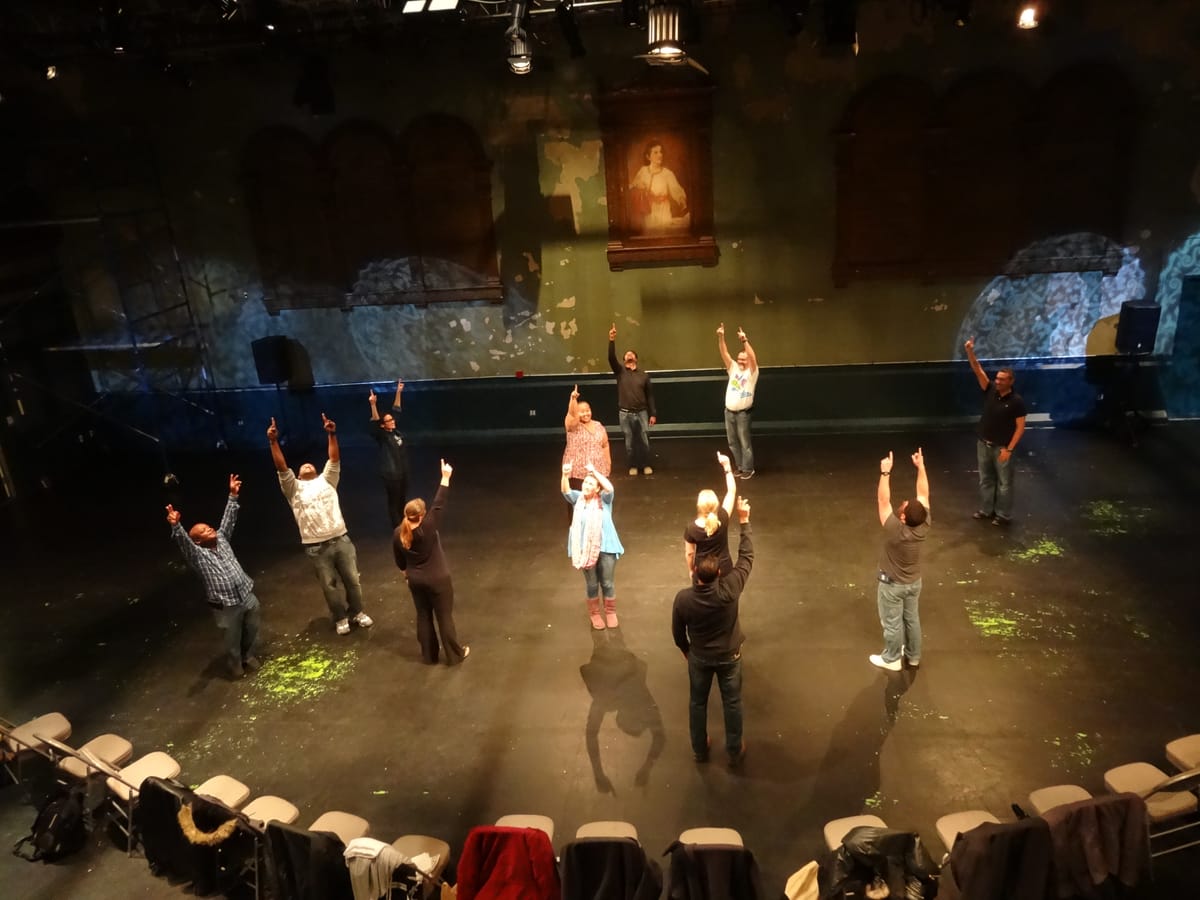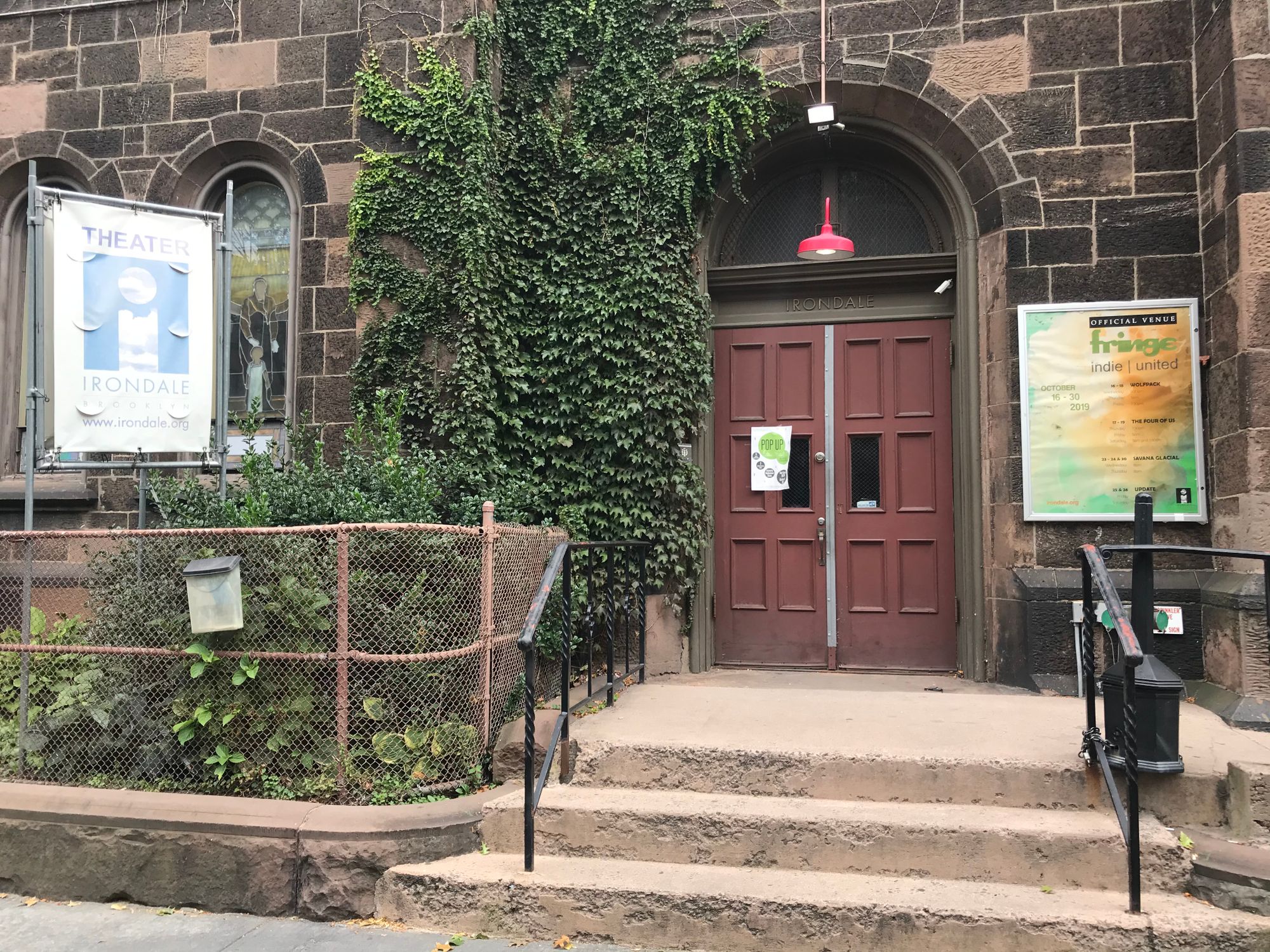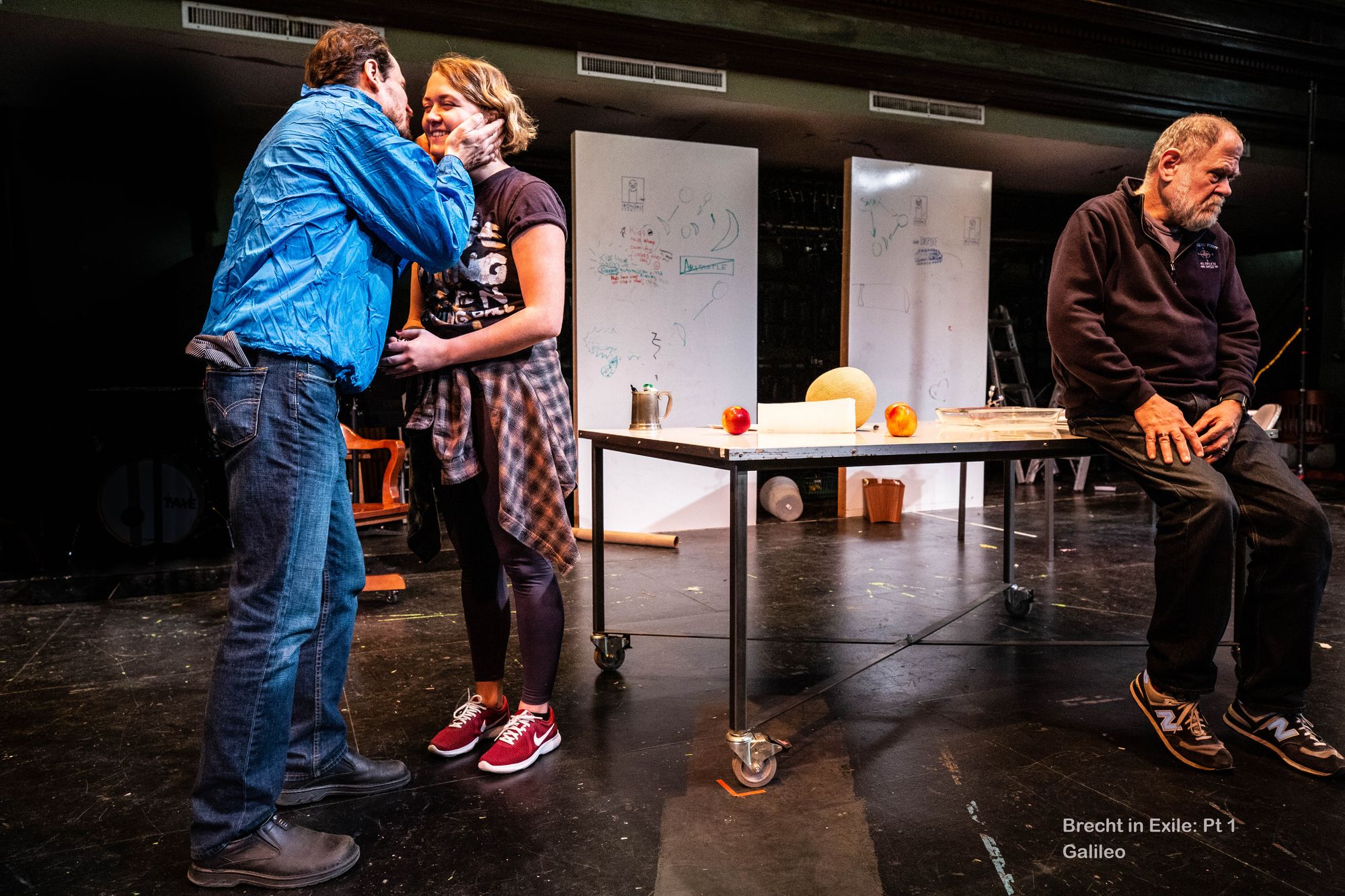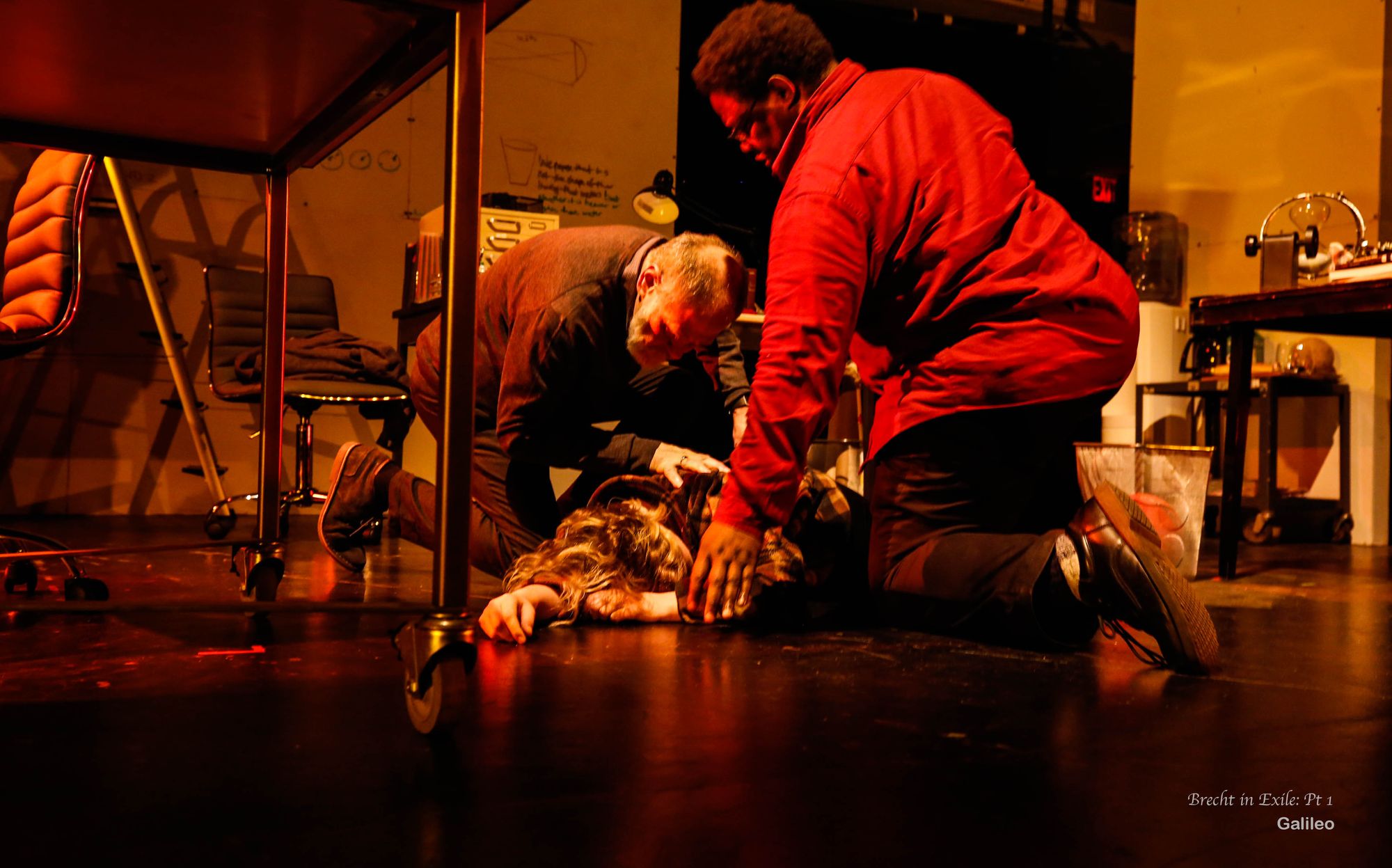Irondale Presents 37th Season Of Politically Engaged Theater

FORT GREENE – The Irondale Ensemble Project, one of the longest running ensemble theater groups in the country, recently announced its 2019-2020 season, which promises to be “politically relevant and emotionally charged.”

The 37th season opens and closes with two new cycles of Irondale’s To Protect, Serve and Understand workshop series and includes a public reading of Murrow’s Boys; Bertolt Brecht’s The Good Person of Szechwan; and the On Women Festival.
Irondale was founded in 1983 by Barbara Mackenzie-Wood, Jim Niesen and Terry Greiss. The three had previously worked together at the Long Wharf Theatre in New Haven, Connecticut where they began exploring Viola Spolin’s improvisational acting techniques. After leaving the Long Wharf Theatre, the trio formed an “ad hoc company” for about five years, “doing improv shows in schools and that led to us really thinking seriously about improvisation as an education tool and as an actor training tool,” Greiss, Executive Director of Irondale, told Bklyner last week. “It seemed that what was in the Spolin book seemed to be another way into Method acting and a way of…bringing the actor’s real talents to the fore. After five years of that we just said, ‘Okay, tomorrow is the day we’re starting a company.'”
For several years Irondale’s office was based in Chelsea, with performances staged in the East Village. “We knew we wanted to work with a permanent ensemble and we also knew that that was an impossible thing in the United States, but we came up with this idea that if everybody was a trained teaching artist, we could get grants for the teaching, which was integral to the work we were doing,” Greiss explained. “We had a group [of 9 actors] pretty solidly for about nine years that just pretty much did Irondale and made that the center of their lives.” The actors were required to show up for Irondale rehearsals regularly, and when they were not working with the group on a production, they were “teaching for the company.”

Irondale has been teaching in Brooklyn schools since its earliest years. Education has always been “the soul of the company,” Greiss notes. The group started off teaching free theater programs at Erasmus, Dewey, Wingate, and Clara Barton high schools, and worked with juveniles on Rikers Island. In the 90s, they received a contract with the Department of Health to develop an adolescent AIDS/HIV educational program, first in schools and then with gang members and kids working in the sex industry. With assistance from a health educator, the team worked with participants to create a show “based on being an adolescent in the time of AIDS” that was performed for their peers.
Along with residency programs at several schools including Fort Greene Prep and Arts & Letters, Irondale currently offers an after-school middle school theater program for 10- to 13-year-olds at its Fort Greene space plus a teen program that provides theater training as well as mentorship. Irondale also works with 600 students in the STEM to STEAM program, coaching them how to use improvisational techniques when presenting their research.
The ensemble continued working in an improvisational style which created a connection with audiences, according to Greiss. “They were always factored into and part of the event. This sense of ‘I am talking to you’—there is no fourth wall, or it’s very ephemeral, diaphanous.” The improvisational techniques they practiced also led the group to the works of Brecht. “He became like the company playwright. When we would do a scripted piece in those days it was very often Brecht. We are still doing Brecht, as you can see our big project is Brecht in Exile.”
The playwright penned three plays, Galileo, The Good Person of Szechwan, and Mother Courage, “while he was escaping the Nazis” according to Greiss. “He kept rewriting them often…always based on some change in world events,” such as the Manhattan Project or the Red Scare. Irondale produced Galileo in 1986 and “we went back to it this past year because we felt that the climate is right,” Greiss noted. First written in 1938, the play examines the scientist’s surrender to the Inquisition, renouncing his teachings.

The second part of Irondale’s Brecht in Exile series, The Good Person of Szechwan, is scheduled to run from January 29 to February 22, 2020. The play is “a parable and it will be done as a fairy tale,” said Greiss. He recalled a recent discussion among the group about the democratic candidates. “At some point I was like ‘this is exactly what Good Person of Szechwan is about…. How can you be a good person in an evil world?'” The group questioned whether any of the candidates could win the election, and concluded, “Maybe you’ve got to do whatever it takes to beat Trump.”
Greiss explained that Irondale will construct the three Brecht in Exile plays in a similar fashion. “Wherever Brecht went when he was in exile, he set up his writer’s room exactly the same way,” and he always worked with collaborators, he said. “The main set for all these plays will be the writer’s room” as Brecht and his team create each play. Throughout the play, actors will perform scripted scenes outside of the writing room, occasionally stepping into it for improvised moments.
“I don’t think there’s a director outside of Berlin who has a better understanding of Brecht than Jim Niesen,” Greiss said of his Irondale colleague. “I’ve worked with great directors and I think Jim is the best of the best.”
Since its start, Irondale has always been made up of a “politically savvy” group of performers, according to Greiss. “They were curious, they were big readers, they were politically engaged. Somebody once said, ‘Irondale is the Saturday Night Live for PBS,’ which I really like. We’ve sort of evolved since then. We’re not quite that way anymore, but we were then.” he said. “As we became more politically involved, it had to be that way. Otherwise there’s a big portion of your life that you’re leaving outside the rehearsal room.”
Another production the group is revisiting this season is Murrow’s Boys (Dec. 6, 2019). “About seven or eight years ago, we created a play called Murrow’s Boys which is about Edward R. Murrow and the birth of broadcast journalism during World War II when those guys [Murrow, William L. Shirer, Charles Collingwood, Eric Sevareid] were really making the medium up as they went along,” Greiss said.
In today’s political climate where “journalists are under attack,” Greiss says it is important to address the changes in the media over the years and discuss “where you get your news and what the news is.” The ensemble will perform a reading of the work “as a sort of lab piece,” according to Greiss, “then keep building on it.”
From March 4 to 21, Irondale will present its third edition of the On Women Festival, a series “focused on women-centric issues.” The “female-driven works of art” will include plays, readings, and workshops.

Also this season, the ensemble will present cycles 8 and 9 of its To Protect, Serve and Understand workshop series (Dec. 13-14 and May 22-23) which consists of performances created by seven police officers and seven community members participating in a ten-week theatrical improvisation program to “build communication and empathy between officers and the communities they are charged to protect and serve.”
Greiss was compelled to start the program after seeing footage of Eric Garner’s death in 2014. “I started watching it as a piece of theater, and I said, ‘There’s some bad acting going on there. They’re missing cues. They’re not looking at each other. They’re not talking to each other. There are such clear physical signals being put out on both parts that they are choosing to ignore or they’re ignoring because they don’t know how to interpret them,’” he recalled.

Greiss wrote to the NYPD, suggesting ways to use acting techniques in training police officers. He received a response within two days and began working with the Collaborative Policing Department to develop the program. All participants are interviewed and asked questions such as: “Can you think of time when you had a difficult conflict that you tried to work out?” and “Can you think of a time where your mind was changed about a long-held belief?”
The groups meet for four hours each week, starting with a communal dinner followed by theater games, improv, singing, storytelling, “and a lot of talk,” according to Greiss. “The conversation gets really difficult and it’s usually hotter for the police officers than it is for the community members, but they come back week after week. I think that’s a very brave thing to do,” he said.
Greiss recalled one particularly difficult exercise in which a black woman who had been sexually molested by police officers in front of her boyfriend recounted the incident to an officer who then had to mirror her, retelling her story in his own words as she watched. “It was chilling,” said Greiss.

When asked what common thread he has found in the workshops, Greiss responded, “For everybody, fear is a big factor.” He also noted that audience members often find different interpretations. “At the end of every performance—we have a mixed audience of police, police brass, community people, and activists—and many people will say it was an advertisement for the police department. The cops will say, ‘there’s a lot of cop bashing going on…’ and they’re watching the same event,” Greiss said.
To Protect, Serve and Understand recently began working with NYPD’s Community Affairs Bureau which allows Irondale to reach officers in other boroughs. “Up until now, we’ve been mostly dealing with Brooklyn officers, and I’d been trying to push that further, so now we’ll have Staten Island and Bronx officers,” Greiss said. He is also currently working to get funding to create a training institute at Irondale where artists from across the country can train to hold similar workshops in other cities. He hopes to launch the training institute by next summer.

Irondale relocated from Manhattan to Brooklyn in the early 2000s, debuting its 3,000-square-foot theater in 2008 at the Lafayette Avenue Presbyterian Church. Today, the ensemble has shrunk to five permanent members who have been with the group for more than three decades. “We finish each other’s sentences,” Griess said. There are also a couple of associate members “who can’t be here everyday anymore” but still take part in major projects. “People grow up, they want to buy condos, they want to have children,” Greiss noted. “It happened to me too. It happened to all of us. Some of us were not smart enough to leave this behind and jump ship,” he added with a laugh.
Greiss is proud that Irondale has survived through the years and insists, “in spite of having no money, in spite of the fact that we’re in a repressive political climate, the quality of the work has never been better.”
Along with the upcoming 2019-2020 season productions, Irondale is the only venue in Brooklyn represented in this year’s New York International Fringe Festival (Oct. 9-30). Irondale will present two contemporary plays, Wolf Pack and The Four of Us, and two experimental productions, Savana Glacial and Update.
Learn more about Irondale at irondale.org.
Irondale
85 South Oxford Street, Fort Greene




